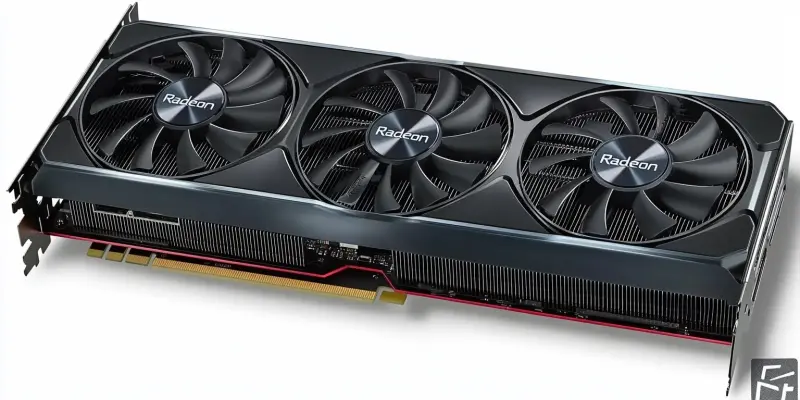The debate surrounding the powerhouses of graphics cards in the AI and machine learning landscape has taken an intriguing turn with AMD’s recent benchmarks. These benchmarks indicate that the Radeon RX 7900 XTX graphics card outshines Nvidia’s RTX 4090 and RTX 4080 Super cards in DeepSeek R1 benchmarks. Notably, AMD’s Vice President and General Manager of Ryzen CPU and Radeon graphics, David McAfee, has stated that the 7900 XTX shows a performance advantage that ranges from 13 percent to an impressive 34 percent compared to Nvidia’s hardware. The exact performance superiority depends on the language model (LLM) and the number of parameters utilized.
For perspective, with seven billion parameters, the Radeon RX 7900 XTX managed to be 13 percent faster than Nvidia’s RTX 4090 in the Distill Qwen benchmark and 11 percent quicker in Distill Llama when dealing with eight billion parameters. Even as the parameter count increased to 14 billion, AMD’s card maintained its edge over Nvidia, outperforming the RTX 4090 by two percent in the Distill Qwen benchmark. However, it’s worth noting that Nvidia’s RTX 4090 did hold a slight edge when the parameters surged to 32 billion, leading the Distill Qwen by four percent. Comparatively, the Radeon RX 7900 XTX consistently displayed superior performance over the RTX 4080 Super, marking a 34 percent performance boost in the DeepSeek R1 Distill Qwen with seven billion parameters and 27 percent in Distill Llama under an eight billion parameter load.
AMD’s Versatile Performance
AMD’s benchmark revelations are more than just statistical triumphs; they are accompanied by actionable instructions for users on executing DeepSeek R1 on Ryzen AI CPUs and Radeon GPUs. The company’s RDNA 3 desktop GPUs have been optimized to support various LLMs through DeepSeek R1, with some models specifically designed to work with Ryzen CPUs. The upper-end Radeon RX 7900 XTX can handle an impressive 32 billion parameters, while even the more accessible RX 7600 can manage up to eight billion parameters in tests like Distill Llama. This expansive compatibility and support underscore AMD’s strategic focus on hardware flexibility, making it a compelling choice for AI and machine learning applications.
These capabilities not only highlight the technical sophistication of AMD’s GPUs but also their commitment to meeting the diverse demands of AI-driven tasks. The benchmarks confirm that the Radeon RX 7900 XTX isn’t merely about brute force but is also crafted for nuanced and varied computational needs. Users looking to leverage large-scale language models will find AMD’s latest offering an appealing choice, especially given its established edge in benchmarks that mimic real-world AI tasks. This further cements AMD’s advancing position in the competitive landscape of graphics cards, especially in contexts requiring robust AI and machine learning processes.
The Competitive Edge
The ongoing debate about top-tier graphics cards in AI and machine learning has gotten more interesting with AMD’s recent benchmarks. These tests indicate that the Radeon RX 7900 XTX surpasses Nvidia’s RTX 4090 and RTX 4080 Super cards in DeepSeek R1 benchmarks. David McAfee, AMD’s Vice President and General Manager of Ryzen CPU and Radeon graphics, highlighted that the 7900 XTX offers a performance boost ranging from 13% to 34% over Nvidia’s cards. This performance advantage varies depending on the type of language model (LLM) and the number of parameters used.
For instance, with seven billion parameters, the Radeon RX 7900 XTX was 13% faster than Nvidia’s RTX 4090 in the Distill Qwen benchmark and 11% faster in Distill Llama with eight billion parameters. Even at 14 billion parameters, AMD’s card still outperformed the RTX 4090 by 2% in Distill Qwen. However, when the parameters increased to 32 billion, Nvidia’s RTX 4090 took a slight lead, surpassing the 7900 XTX by 4% in Distill Qwen. Comparatively, the Radeon RX 7900 XTX showed consistent superiority over the RTX 4080 Super, with a 34% boost in DeepSeek R1 Distill Qwen at seven billion parameters and a 27% increase in Distill Llama with eight billion parameters.

